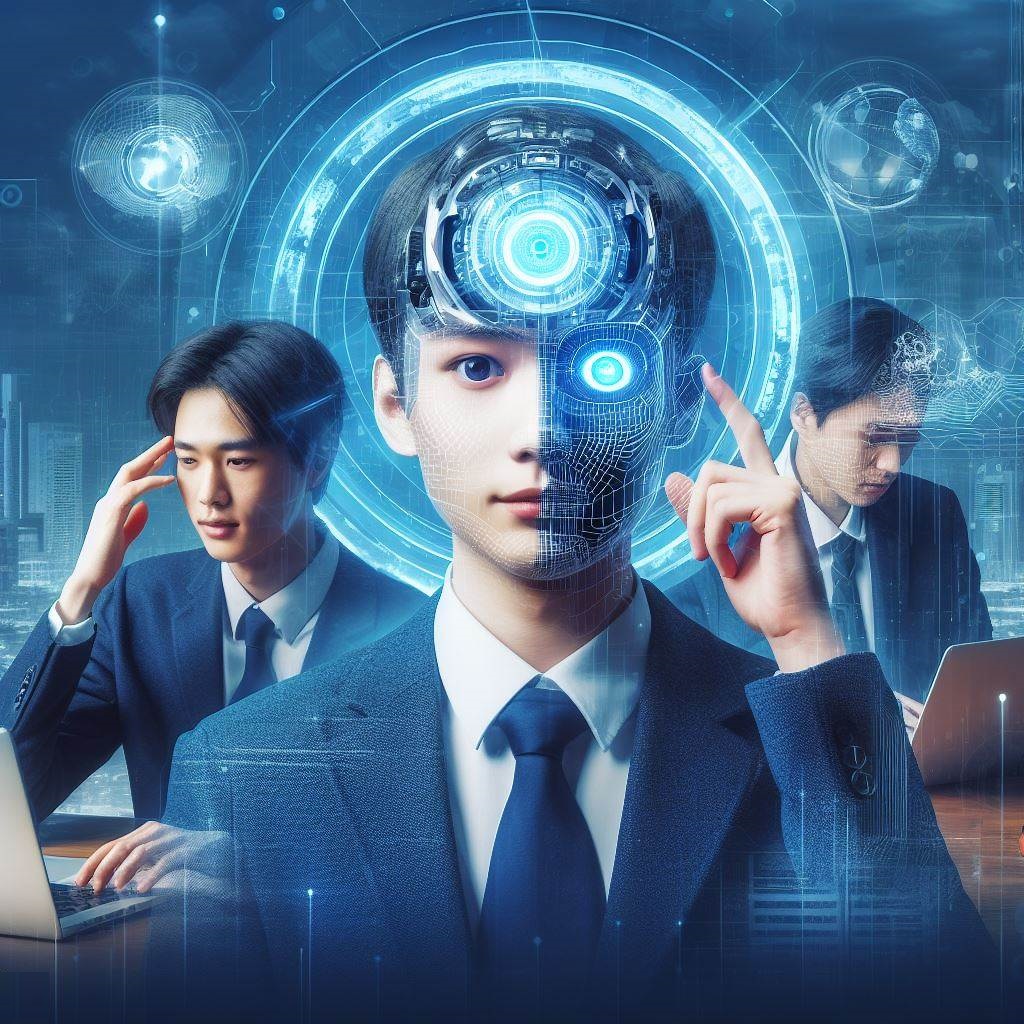Artificial intelligence (AI) has rapidly become an integral part of our daily lives, with its presence expanding into various sectors, including education. AI has the potential to revolutionize the way university students learn and engage with course material. However, this technology also comes with its share of challenges and potential side-effects for students. It is essential to deeply explore and understand the impacts of AI usage in universities, both in terms of its proper use and its potential drawbacks. This article delves into the future of AI in universities and sheds light on the implications it has on students.
Bonus Article: A Powerful Tool for University Student’s Personal and Professional Development
The Transformation of Learning: How AI is Reshaping Education
One of the most significant impacts of AI on university students is the transformation of learning itself. As AI technology continues to evolve and advance, it is reshaping education in ways that were previously unimaginable. Traditional approaches to teaching and learning are being augmented or replaced by AI-powered tools and platforms that provide personalized and adaptive learning experiences.
With the help of AI, educators can create customized curricula that cater to the individual needs and learning styles of each student. AI algorithms can analyze vast amounts of data to identify knowledge gaps and provide targeted recommendations for further study. This personalized approach not only enhances the learning experience but also improves student outcomes and academic performance.
Furthermore, AI-powered chatbots and virtual assistants are becoming increasingly prevalent in educational settings, providing students with round-the-clock support. These virtual assistants can answer questions, provide explanations, and offer guidance, thereby freeing up valuable time for teachers and allowing them to focus on more complex and higher-order tasks.
While the transformation of learning through AI holds immense potential, it also raises questions about the role of educators and the possibility of dehumanization in the classroom. Universities must carefully navigate the adoption of AI to ensure that it enhances, rather than replaces, the vital role of teachers in fostering critical thinking, creativity, and social skills.
In the next section, we will delve deeper into the various ways in which AI is reshaping education and explore the benefits and potential challenges associated with these changes. Stay tuned for a comprehensive analysis of the evolving landscape of AI in universities and its impact on student learning.
Challenges and Concerns: The Dark Side of AI in Higher Education
While the integration of AI into higher education brings numerous benefits, it also presents its fair share of challenges and concerns. As universities embrace AI technology, it is essential to acknowledge and address these potential drawbacks to ensure a balanced and ethical approach.
One major concern is the risk of perpetuating bias in AI-powered systems. These algorithms are trained on large datasets, which means that if the data itself contains bias, the AI system will learn and reinforce those biases. For example, if a dataset used to train an AI algorithm for evaluating student performance is biased towards certain demographics, it could lead to unfair and discriminatory outcomes.
Another concern is the potential for job displacement among educators. As AI becomes more capable of automating certain tasks, there is a fear that teachers may be replaced by AI-powered systems. While it is unlikely that AI will completely replace human teachers, it could result in a shifting role for educators, requiring them to adapt to new roles as facilitators, mentors, and guides in the AI-enhanced learning environment.
Privacy and data security also emerge as significant concerns. AI-powered systems collect and analyze vast amounts of data about students, including their learning progress and behavior. To ensure student privacy, universities must establish robust data protection measures and address any ethical concerns regarding the use of sensitive student data.
Ethical considerations involving AI in higher education should not be overlooked. Issues such as AI-generated content, automated essay grading, and the use of AI for surveillance raise questions about intellectual property, academic integrity, and student autonomy.
In the next section, we will explore these challenges and concerns in greater detail, providing insights into how universities can navigate the potential pitfalls of AI integration. Stay tuned for an in-depth discussion on the ethical implications and practical considerations of AI in higher education.
Preparing for the Future: Enhancing Skills to Adapt to an AI-Driven World
As the integration of AI into higher education continues to progress, it is crucial for university students to prepare themselves for the future and enhance their skills to thrive in an AI-driven world. While the potential benefits of AI are evident, it is equally important to acknowledge the need for skill development and adaptability.
One key skill that students should focus on is critical thinking. With AI becoming increasingly proficient in automating routine tasks, individuals with the ability to analyze, evaluate, and interpret information will have a competitive advantage. Critical thinking enables students to make informed decisions, identify biases in AI algorithms, and challenge the status quo.
Additionally, students should prioritize the development of skills that complement AI technology rather than competing with it. Collaborative problem-solving, creativity, emotional intelligence, and adaptability are traits that AI struggles to replicate. By nurturing these skills, students can position themselves as valuable contributors in an AI-driven workplace.
Moreover, embracing a lifelong learning mindset is crucial in an AI-enabled future. As AI technology continues to evolve and transform industries, students must be open to continuous learning and upskilling. This includes staying updated on the latest AI developments, enrolling in courses that bridge the gap between AI and their chosen field, and seeking out opportunities to gain practical experience with AI applications.
In conclusion, the future of university students in an AI-driven world lies in their ability to adapt, enhance their skills, and embrace ongoing learning. By fostering critical thinking, developing complementary skills, and maintaining a forward-thinking mindset, students can navigate the challenges and leverage the opportunities presented by AI integration. In the following section, we will delve deeper into specific strategies and resources available to students to help them prepare for this AI-driven future.
Ethical Considerations: Balancing AI Advancements with Student Well-being
As the integration of AI into higher education continues to advance, it is imperative to address the ethical considerations that arise from this technological transformation. While the benefits of AI in the realm of education are undeniable, it is essential to strike a balance between these advancements and the well-being of university students.
One of the key ethical considerations is the potential for bias in AI algorithms. As AI systems learn from existing data, there is a risk of perpetuating societal biases and inequalities. University students should be aware of this and actively work towards understanding and challenging any biases they encounter. By fostering a critical mindset, they can question the fairness and implications of AI algorithms used in their education.
Privacy concerns are another area of ethical consideration. With AI-enabled systems collecting vast amounts of data, students must be aware of the implications of sharing their personal information. Universities must prioritize data protection and ensure that students’ privacy is respected. It is important for students to understand their rights regarding data privacy and make informed decisions about the information they share with AI systems.
Furthermore, the potential for job displacement due to AI automation raises ethical concerns. As certain tasks become automated, university students should prepare themselves for a shifting job market. This may involve acquiring new skills or exploring career paths that complement AI technology rather than competing with it. Institutions should support students in this transition by offering guidance and resources for upskilling and career development.
Ultimately, the integration of AI in higher education should prioritize the well-being and interests of university students. Ethical considerations surrounding bias, privacy, and job displacement require careful attention. By actively engaging in discussions around these topics and advocating for responsible AI practices, both students and institutions can navigate the AI-driven future with a sense of integrity and social responsibility.
In the next section, we will delve into practical steps that students can take to address these ethical considerations and ensure a positive AI experience during their university years.
Embracing the Potential: Opportunities for Collaboration between AI and Students
Now that we have explored the ethical considerations surrounding AI integration in higher education, let us shift our focus to the exciting opportunities that arise from collaborating with AI. As university students, embracing the potential of AI can enable us to enhance our learning experiences and shape our futures in unprecedented ways.
One of the significant advantages of AI in education is its ability to personalize learning. AI-powered systems have the potential to analyze individual learning styles, preferences, and pace, enabling students to receive tailored educational content and support. By actively engaging with these technologies, students can benefit from a personalized learning journey that caters to their unique needs and strengths.
Furthermore, AI can provide students with valuable insights and data-driven feedback to improve their academic performance. Through algorithms that analyze patterns in student behavior and performance, AI can identify areas of strength and areas that require further attention. Armed with this knowledge, students can make informed decisions about their study habits, time management, and areas to focus on, ultimately enhancing their learning outcomes.
Additionally, AI offers exciting prospects for interdisciplinary collaboration. With its ability to process and analyze vast amounts of information across multiple domains, AI can bridge the gap between different fields of study. Students from various disciplines can come together to harness the power of AI, combining their expertise to tackle complex problems and innovate in unexplored areas. Collaborative projects that leverage AI can foster creativity, critical thinking, and a deeper understanding of the interconnectedness of knowledge.
As we embrace the potential of AI in higher education, it is crucial to approach this collaboration with a mindset of curiosity, adaptability, and responsibility. By actively engaging with AI technologies, students can not only enhance their learning experiences but also contribute to shaping the future of AI in education. Together with our teachers and institutions, we can explore the boundaries of AI’s capabilities while remaining mindful of ethical considerations and working towards a future that benefits all.
In the next section, we will provide practical tips and resources for university students to effectively integrate AI into their academic journey and make the most out of this transformative technology. Stay tuned for valuable insights and strategies to navigate the AI-driven future of higher education!
Conclusion: Navigating the Complex Future of AI in University Education
Now that we have delved into the exciting opportunities that AI offers in higher education, it is important to reflect on the complex future that lies ahead. As university students, we must navigate the integration of AI with caution, mindfulness, and a critical lens.
While AI holds great promise, we must remain vigilant about addressing its limitations and potential pitfalls. The ethical considerations we discussed earlier should guide our interactions with AI systems. As we engage with personalized learning platforms and data-driven feedback, it is essential to question the accuracy and objectivity of the algorithms at work. We must advocate for transparency and accountability to ensure that AI technologies do not perpetuate bias or further exacerbate inequalities in education.
Moreover, as interdisciplinary collaboration becomes more prevalent with the help of AI, we must resist the temptation of relying solely on AI-driven solutions. Instead, we should strive for a balance between human expertise and AI assistance. By valuing human creativity, critical thinking, and empathy, we can ensure that AI remains a tool to augment our knowledge rather than replace human ingenuity.
In conclusion, the integration of AI in university education is an ongoing journey filled with promise and uncertainty. As university students, we have the power to shape this future by actively engaging with AI and advocating for responsible use. Let us embrace the opportunities while staying mindful of the potential risks, ultimately working towards a future that harnesses the transformation power of AI to benefit all.

